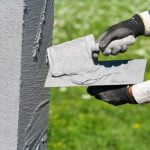If you’re wondering where to apply for home improvement grants, look no further. Home improvement grants are a valuable resource for individuals and families seeking financial assistance to make necessary repairs or upgrades to their homes. These grants are designed to help homeowners improve the safety, accessibility, and energy efficiency of their properties.
Home improvement grants serve a crucial purpose in providing financial support to those who may not have the means to fund essential home improvements on their own. Whether it’s addressing structural issues, making accessibility modifications for elderly or disabled residents, or improving energy efficiency, these grants can make a significant difference in the lives of homeowners.
Before diving into the application process, it’s important to understand the eligibility requirements for home improvement grants. Specific income limits and other criteria must be met in order to qualify. Researching available grants is also key in identifying potential sources of funding. By exploring federal, state, local government, and nonprofit grant programs as well as considering alternative options such as loans, rebates, and tax credits, homeowners can determine the best fit for their specific needs.
Understanding Eligibility Requirements
When it comes to applying for home improvement grants, understanding the eligibility requirements is crucial. Most grants are targeted towards low-income individuals and families who may not have the financial means to make necessary home improvements. Here are some common eligibility requirements to be aware of:
- Income Limits: Many home improvement grants have specific income limits that applicants must fall within in order to qualify for assistance. These limits can vary depending on the grant program and the location.
- Property Ownership: Some grants may require applicants to own the property that will be the subject of the improvements. Renters or those living in public housing may not be eligible for certain grants.
- Specific Home Improvement Needs: Certain grant programs may have specific requirements for the types of improvements that are covered. For example, some grants may focus on energy efficiency upgrades, while others may prioritize health and safety-related repairs.
It’s important to thoroughly research and understand the eligibility requirements for any home improvement grant before applying. Additionally, it’s worth noting that there are often limited funds available for these programs, so meeting all eligibility criteria does not guarantee approval.
For individuals and families who meet the eligibility requirements, home improvement grants can provide much-needed financial assistance to make essential repairs or upgrades to their homes. Taking the time to carefully review and understand these requirements is a crucial first step in pursuing this valuable funding opportunity.
Researching Available Grants
Tips for Finding Home Improvement Grants
When it comes to researching available home improvement grants, there are a few strategies individuals and families can use to successfully find relevant funding opportunities. One important tip is to start by visiting official government websites, as they often provide comprehensive information about the various grant programs available at the federal, state, and local levels. Additionally, signing up for alerts and newsletters from grant-making organizations can help applicants stay informed about new funding opportunities.
Another useful strategy is to network with local community organizations and nonprofit groups that may offer grant programs or have knowledge of sources of financial assistance for homeowners. These groups can provide valuable guidance on where to look for grants and how to navigate the application process. Lastly, conducting thorough research into specific types of home improvements needed can also lead to discovering specialized grants for projects such as energy efficiency upgrades, accessibility modifications, or disaster recovery assistance.
Websites and Resources for Researching Grants
In addition to official government websites, several online resources can be valuable tools in researching and applying for home improvement grants. Websites such as Grants.gov and Benefits.gov offer searchable databases of federal grants along with eligibility criteria and application instructions. Moreover, many state housing and community development agencies maintain websites with detailed information on available grant programs specific to their region.
Nonprofit organizations like Habitat for Humanity or Rebuilding Together also provide resources and support for individuals seeking assistance with home repairs or renovations through their own grant programs or partnerships with other funders. It’s important for applicants to utilize a variety of online and offline resources when conducting their research in order to increase their chances of identifying suitable grants.
Understanding Different Types of Grants
One key aspect of researching available home improvement grants is understanding the different types of grants that exist. While some grants are specifically aimed at low-income homeowners, others may target particular demographics such as elderly residents or veterans. There are also specialized funding programs offered by federal agencies related to environmental conservation, urban development, or historic preservation that may be applicable to certain renovation projects.
By familiarizing themselves with the unique characteristics of different grant programs, applicants can tailor their search efforts and applications more effectively towards grants that align closely with their specific needs and circumstances. This approach increases the likelihood of finding a suitable match between available funding opportunities and the desired home improvement projects.
Federal Government Grants
Overview of Federal Grants
The federal government offers a variety of grants to assist homeowners in making necessary improvements to their homes. These grants are often designed to help low-income individuals and families create safer and more sustainable living environments. The funds provided through federal grants can be used for a wide range of home improvement projects, including repairs, upgrades for energy efficiency, and modifications for accessibility.
Applying for Federal Grants
The process for applying for federal home improvement grants typically involves completing an application that includes detailed information about the homeowner’s income, the proposed project, and the expected cost. Additionally, applicants may need to provide proof of homeownership and demonstrate how the improvements will benefit their household.
Examples of Federal Grant Programs
Some examples of federal grant programs for home improvements include the USDA Rural Development Program, which provides grants and low-interest loans to residents in rural areas; the Weatherization Assistance Program (WAP), which helps low-income households enhance energy efficiency; and the HUD HOME Investment Partnerships Program, which offers funding for various housing-related activities. Each program has specific eligibility requirements and application processes that homeowners must follow when seeking funding for their home improvement projects.
State Government Grants
Many states offer home improvement grants to assist their residents in making essential repairs or upgrades to their homes. These grants are typically targeted towards low-income individuals and families who may not have the financial means to make necessary improvements on their own. Each state has its own specific eligibility requirements, application process, and available grant programs.
To apply for a state government grant for home improvements, individuals will need to research the specific programs offered by their state. This can typically be done by visiting the official website of the state’s housing or community development department. The website will provide detailed information about the eligibility criteria, required documentation, and application deadlines for each grant program.
Examples of common state grant programs for home improvements include funding for energy-efficient upgrades, accessibility modifications for elderly or disabled homeowners, and weatherization assistance. Some states also offer rehabilitation grants for homeowners living in designated revitalization areas. It is important for potential applicants to carefully read through the requirements of each program to determine which ones they may be eligible for.
In addition to state government grants, there are often local grant programs available at the county or city level within each state. These programs may have their own specific eligibility criteria and application processes. It is beneficial for homeowners to explore all potential avenues for financial assistance when considering home improvement projects.
Local Government and Nonprofit Grants
When it comes to securing funds for home improvement projects, local government agencies and nonprofit organizations can be valuable sources of financial assistance. These entities often offer grants to help homeowners make necessary repairs and upgrades to their properties.
Local government agencies typically provide grants through housing or community development departments. These grants are often targeted at low-income households or neighborhoods in need of revitalization. Nonprofit organizations may also offer grant programs aimed at specific communities or demographics, such as veterans, senior citizens, or individuals with disabilities.
To find and apply for these local government and nonprofit grants, homeowners can start by contacting their city or county housing departments to inquire about available programs. They can also conduct research online to identify nonprofit organizations that offer home improvement grant opportunities. Additionally, reaching out to community groups, neighborhood associations, or housing advocacy organizations may yield information about potential grant options.
Once homeowners have identified relevant local government and nonprofit grant programs, they should review the application requirements carefully and ensure that they meet all eligibility criteria before applying. It’s important to note that these grants are typically competitive, so applicants should be prepared to submit a thorough and well-documented proposal outlining the proposed home improvement project and demonstrating the need for financial assistance.
As with any grant application process, it’s essential for homeowners to follow all instructions provided by the granting agency or organization and pay close attention to deadlines. By taking advantage of local government and nonprofit grant opportunities, homeowners can access valuable resources to support their efforts in improving the safety, accessibility, and overall quality of their homes.
| Local Government Grants | Nonprofit Organization Grants |
|---|---|
| Funded by city/county housing departments | Funded by charitable organizations |
| Targeted at low-income households or neighborhoods | May focus on specific communities or demographics |
| Contact city/county housing departments for information | Research online for relevant organizations |
Tips for a Successful Grant Application
When applying for home improvement grants, it is important to prepare a successful application to increase the chances of receiving funding. Here are some tips for a successful grant application:
- Research the specific requirements: Before applying for any home improvement grant, it is crucial to thoroughly research and understand the specific eligibility criteria and application requirements. This may include income limits, documentation needed, and other qualifications that must be met.
- Follow the application instructions: Pay close attention to the instructions provided by the grant program. Make sure to complete all required forms accurately and provide all necessary documents. Failure to follow the instructions may result in your application being disqualified.
- Provide a detailed project proposal: When applying for a home improvement grant, it is essential to provide a detailed project proposal outlining the scope of work, estimated costs, and expected outcomes. Be clear and specific about how the funding will be used and how it will benefit your home or community.
- Highlight community impact: Many grant programs prioritize projects that will have a positive impact on the community. When preparing your application, emphasize how your proposed home improvements will benefit not only you but also your neighborhood or local area.
By following these tips, applicants can greatly improve their chances of securing home improvement grants for their projects. It is important to take the time to carefully plan and craft a compelling application in order to stand out among other applicants.
Other Financial Assistance Options
When seeking financial assistance for home improvement projects, there are alternative options to consider aside from grants. Loans, rebates, and tax credits can also serve as potential sources of funding to help with the costs of renovations and repairs.
Loans are a common option for homeowners looking to fund home improvement projects. Whether it’s a home equity loan or a personal loan, there are various types of loans available with different interest rates and repayment terms. Homeowners should carefully assess their financial situation and compare multiple lenders to find the most favorable loan option for their needs.
In addition to loans, there are also rebates and tax credits that can provide financial relief for eligible home improvement projects. Some energy-efficient upgrades such as solar panels, insulation, or efficient HVAC systems may qualify for rebates or tax credits offered by government agencies or utility companies. Homeowners should research local incentives and programs to see if they can take advantage of any available rebates or tax credits for their home improvements.
Understanding these alternative financial assistance options is crucial for homeowners embarking on home improvement projects. By exploring loans, rebates, and tax credits alongside grant opportunities, individuals can make informed decisions about how to best fund their renovation or repair endeavors. It’s important for homeowners to thoroughly research each option and carefully weigh the pros and cons before committing to any particular source of financial assistance.
Conclusion
Applying for home improvement grants can seem daunting, but with the right research and preparation, individuals and families can access the financial assistance they need to make necessary improvements to their homes. By understanding eligibility requirements and researching available grants, homeowners can find valuable resources to help with the cost of repairs or renovations.
It’s important to note that there are various options for home improvement grants at the federal, state, and local levels. Each level of government offers its own programs with different eligibility criteria and application processes. Additionally, local nonprofit organizations also provide grant opportunities for qualifying homeowners.
In addition to grants, it’s essential to consider other financial assistance options such as loans, rebates, and tax credits. These alternatives can provide additional support for covering the costs of home improvements. By taking advantage of all available resources, homeowners can make necessary upgrades to their homes without experiencing significant financial strain.
Additional Resources
In conclusion, home improvement grants can be a valuable resource for individuals and families looking to make necessary upgrades to their homes. By understanding the eligibility requirements and researching available grants at the federal, state, and local levels, homeowners can find financial assistance to support their improvement projects. Additionally, exploring other financial assistance options such as loans, rebates, and tax credits can provide further support.
It is important for readers to take advantage of the information provided in this article and seek out the resources and funding options that best fit their needs. By carefully preparing a successful grant application and avoiding common mistakes, homeowners can increase their chances of receiving the financial support they need for home improvements. It is also advisable to explore additional resources and organizations offering further information on home improvement grants and financial assistance options.
Overall, with careful research and preparation, eligible individuals and families can find the support they need to make essential improvements to their homes. It is important to explore all available options and take advantage of the resources provided by government agencies, nonprofit organizations, and other sources of financial assistance in order to successfully complete home improvement projects.
Frequently Asked Questions
Who Is Eligible for Government Home Improvement Grant Kentucky?
Eligibility for the Government Home Improvement Grant in Kentucky depends on various factors such as income level, home ownership status, and specific home improvement needs. Low-income individuals, seniors, veterans, and people with disabilities may be eligible for assistance. The goal of the program is to help improve living conditions and make homes safer and more energy-efficient.
Who Is Eligible for Government Home Improvement Grant in Wisconsin?
Residents of Wisconsin who are low-income homeowners or renters may be eligible for government home improvement grants. Income levels and specific home improvement needs play a crucial role in determining eligibility. The grants aim to address health and safety hazards in homes, make necessary repairs, and increase energy efficiency to reduce utility costs.
What Is the Ohio Housing Assistance Grant Program?
The Ohio Housing Assistance Grant Program provides financial assistance to low- and moderate-income homeowners for home repairs, rehabilitation, and improvements to address health and safety hazards. This includes roof repairs, plumbing or electrical system upgrades, accessibility modifications for seniors or people with disabilities, and other essential improvements needed to make the home safe and habitable.
The program aims to support affordable homeownership while improving housing conditions across Ohio.

I’m thrilled to have you here as a part of the Remodeling Top community. This is where my journey as an architect and remodeling enthusiast intersects with your passion for transforming houses into dream homes.





